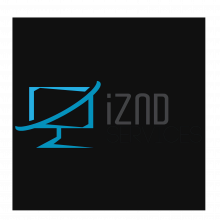
There are 7 Companies in Malaysia
that provide BigCommerce Services!
Malaysia is strategically situated with easy accessibility to other countries and has a robust infrastructure, economic stability. ICT has been identified as the key growth sector in the country that grows at an Annual Average Growth Rate (AAGR) 9.0 percent over a period of 7 years. The ICT sector is one of the most productive in Malaysia, and besides boosting digital transformation, it is contributing about 13.8% to the total GDP.
Discover Top IT Companies in Malaysia specialized in BigCommerce and other related services. Find the best IT service providers for your projects.
BigCommerce is a Software as a Service and eCommerce cloud-based platform, founded in 2009. Its main goal is to help vendors administrate and improve their businesses, offering them a user-friendly experience and to reach their target customer base. Small and large businesses can benefit from BigCommerce while launching their online shop.
This eCommerce platform is suitable for B2B, optimized for buyer experience, operational performance, and doesn’t require skills in web development or web-based commerce. It can provide your project with flexibility, reduced support, and a remarkable online buying journey for your users.
Thousands of B2B, B2C, and small enterprises from various domains and more than 150 countries trust BigCommerce for optimizing their enterprises.
Handpicked companies • No obligation to hire • 100% risk-free
Featured Companies in Malaysia
This month, the following BigCommerce companies managed to provide an outstanding service and support. It's worth taking a look.

Kuala Lumpur, Malaysia Head office in: United States
SDLC Corp is a global IT solutions provider offering custom software, apps, blockchain, AI, Odoo, Salesforce, and game development services.

Kuala Lumpur, Malaysia Head office in: United States
Access the Top 1% Tech Talent | 1500+ In-House Developers | Trusted by Fortune 500 Companies

Fire Bee Techno Services Verified Company
Kuala Lumpur, Malaysia Head office in: India
Fire Bee Techno Services is an ISO-Certified Blockchain and AI Development Company In india and across the world with 13+ years of experience.
Explore Top BigCommerce Companies in Malaysia

TechGropse Pvt. Ltd. Verified Company
Kuala Lumpur, Malaysia Head office in: United Arab Emirates
Techgropse is a leading Mobile App and Web Development Company, dedicated to turning innovative ideas into remarkable digital solutions. 500+ Clients
Innovative IT solutions provider specializing in SaaS, IoT, and cloud infrastructure for businesses worldwide.
Based in Cyberjaya, Malaysia specialize in delivering potent creative design, video production, and digital marketing services that elevate brands
Filter BigCommerce Companies in Malaysia by Cities
Find the right tech company near you or from a specific city. Some of the best companies might be located in smaller cities.
Find more BigCommerce companies around the world
TechBehemoths is the world's most advanced and user-friendly platform to match IT Companies with real clients without hustle.
The IT Industry in Malaysia: General Portrait
Malaysia is strategically situated with easy accessibility to other countries and has a robust infrastructure and economic stability. ICT has been identified as the key growth sector in the country that grows at an Annual Average Growth Rate (AAGR) of 9.0% over a period of 7 years. The ICT sector is one of the most productive in Malaysia, and besides boosting digital transformation, it is contributing about 13.8% to the total GDP.
Malaysia has always been a popular destination for U.S. ICT companies for their global market expansion. Some of the significant U.S. companies that are well-established in Malaysia are IBM, HP, Intel, Google, Amazon, and many others. Malaysia has a holistic digital ecosystem and a complete ICT support system for U.S. businesses.
At the same time, according to Markus Monnikendam from Lizard Global, a leading IT company from Malaysia, we can say that following a stronger-than-expected rebound of 7.8 percent last year, the Central Bank of Malaysia projects economic growth of between 4% and 5% in 2023, which will help Malaysia avoid a recession. The recovery is widespread across industries and businesses. Since the reopening of international borders, recovery has become more established. Businesses of all sizes and in all industries saw an increase in sales as compared to the same period before the pandemic. But when it comes to sales growth, big businesses continue to dominate.
Why You Should Work With Malaysian IT Companies
Malaysia is a great outsourcing opportunity for foreign companies, but it hosts numerous tech giants, which have educated the local digital community to implement those needed changes in business culture, project management, and prepared the skilled workforce in the IT industry.
For this reason, companies from Malaysia are more visible and considered a regional force in the IT industry, making good competition for Indonesia, the Philippines, and even India.
In addition to this, Markus Monnikendam, the Commercial Director Global of Lizard Global, mentions that in the upcoming years, Malaysia's growth will be centered on technology. Malaysia's much-awaited adoption of 5G technology is anticipated to have a substantial positive impact on the labor market because it will enhance the development of the web and generate an estimated 39,000 value-added jobs.
Why Outsource Software Development to Malaysia?
Malaysia is an attractive outsourcing destination known for offshoring services in software development and BPO. It has a rapidly growing tech industry with thriving tech hubs, boasting a vibrant startup ecosystem, innovation centers, and accelerators. Various factors make Malaysia more appealing as an outsourcing location, including supportive government policies, the presence of tech cities, and high-quality education. Additionally, talented tech experts, high English proficiency, cost-effectiveness, and ease of doing business in Malaysia raise Malaysia’s position as a perfect destination for software development outsourcing.
What to Pay Attention to When Working With Malaysian IT Companies
Since it is expected that Malaysia will reach a digitalization level of 21% by 2025, local IT companies are struggling to invest in the training and education of young developers and designers that would bring potential growth to the Malaysian IT sector. However, following the current trends, Malaysian IT companies have a high chance of growing and providing higher-quality digital services.
Also, the layoffs in the IT industry. Markus Monnikendam from Lizard Global states that recent layoffs at IT firms show that even the biggest businesses can make misjudgments when attempting to strike a balance between staff planning and profitability.
How Reliable Are Malaysian IT Companies
On a regional background known for outsourcing destinations for international IT companies, Malaysian web and software agencies have a continuously improving position in terms of reliability. Both local demands for digital products and international opportunities gave Malaysian IT companies enough chances to reveal their potential and increase the trust level of clients.
How Does the Malaysian IT Industry Relate to the Neighboring Countries?
The tech evolution in the past 5 years has managed to create a competitive environment in the region, where each step towards evolution is considered an advantage. The Malaysian IT industry relies heavily on tech giants' investments that would to manage, keep, and educate young professionals. Nonetheless, the recent tax-friendly policies implemented by the Malaysian government managed to develop the IT industry and infrastructure, but it is still behind Indonesia and India.
How is the Business Climate for Opening a New IT Company as a Local Entrepreneur in Malaysia?
According to Ezra Tan from VeecoTech Web & Ecommerce Sdn Bhd, a local IT company from Malaysia, the demand is higher than the supply. However, IT talent is minimal, and companies are competing aggressively to recruit talent, which is one of the main struggles for new IT companies that have to compete with bigger market players. This means that when opening an IT company in Malaysia, the entrepreneur should first look for skilled professionals due to high competitiveness, and only later be concerned about incoming projects.
Moreover, Markus Monnikendam states that Malaysia, a developing nation, has been attempting to diversify its economy to reduce its reliance on natural resources and move towards a more knowledge-based economy. Kuala Lumpur (KL) is ranked as the third best startup ecosystem in Southeast Asia, behind Singapore and Jakarta, in Startup Genome's 2020 Global Startup Ecosystem Report. With startups in numerous industries, Malaysia has a broad startup environment. However, e-commerce, fintech, and healthcare are the most promising industries.
How do Governmental Institutions Encourage the Development of the IT Sector?
Erza Tan also states that there are multiple grants that are being rolled out to encourage businesses to be more innovative and to assist small businesses to digitalize their businesses with special tax rebates as well. Some of these grants can be found at MDEC, or get more information about them on HSBC.
Also, according to the Commercial Director Global of Lizard Global, Markus Monnikendam, the Malaysian government created the MyDIGITAL program as part of the Malaysia Economy Digital Economy Blueprint to promote this broad-based ambition, embracing a national digital transformation. The government has goals to make Malaysia a high-income, digitally-driven nation and a regional leader in the digital economy by 2030, and this program is a part of those plans. Malaysia aims to strengthen its position as a regional data hub through the government's Cloud First plan under the MyDIGITAL framework, embracing investment in data centers.
Industry 4.0 represents a shift in the global economy of Malaysia, driven by technologies like AI, IoT, robotics, and big data analytics. It helps improve efficiency and competitiveness and is adopted by different countries, including Germany, the US, and China. Malaysia is leveraging Industry 4.0 to optimize its manufacturing industry, attract foreign investments, and foster tech innovations.
Kuala Lumpur & Penang - the Best Cities for IT Businesses, Locals Say
When asked about the best two places for IT businesses in Malaysia, Erza mentioned that Kuala Lumpur would be the best city for IT companies, as it has the best balance of having a bigger pool of talent and a bigger opportunity to do business with a wide range of local and MNC companies there. The next location would be Penang. A growing hub and one of the biggest contributors to the country's revenue.
But the list goes on, as Markus Monnikendam from Lizard Global places in the lists two other locations at the top of doing IT business in Malaysia: Cyberjaya and Iskandar Puteri.
- Cyberjaya - With 144,000 innovators and creators, 400 MSC-status organizations, including multinational corporations (MNCs), and more than 40 government offices and centers, the city is currently regarded as Malaysia's technological hub. It essentially acts as the foundation for successful technology companies and businesses.
- Iskandar Puteri - It is now a center for cutting-edge digital innovations. Iskandar NEXT, one of its initiatives, aims to create and deploy Fourth Industrial Revolution (4IR) technological ecosystems. The Blockchain Village at Medini (BVAM) and the Drone and Robotics Zone (DRZ) Iskandar, Malaysia's first drone and robotics hub, were both made possible as a result.
Is the Malaysian Talent Poll IT-driven?
The short answer - yes. The long answer, however, has a more detailed explanation. According to Lizard Global, when local talents move employers in 2023, local talent anticipates earning an increase of 20% to 30% in pay. Less than 20% salary increases will probably make it difficult for businesses to recruit top employees. Other financial perks, such as fuel or transportation allowances, food subsidies, and flexible yearly leave, are particularly effective for attracting talent while improving the entire employee experience. However, if there is one perk that we are aware of that employees value most, it is flexible scheduling.
This article was created together with prominent figures and professionals coming from reputable Malaysian IT Companies. Special credits: Erza Tan and Markus Monnikendam.
What is BigCommerce and what are its benefits for your projects?
BigCommerce is a Software as a Service and eCommerce cloud-based platform, founded in 2009. Its main goal is to help vendors administrate and improve their businesses, offering them a user-friendly experience and to reach their target customer base. Small and large businesses can benefit from BigCommerce while launching their online shop.
This eCommerce platform is suitable for B2B, optimized for buyer experience, operational performance, and doesn’t require skills in web development or web-based commerce. It can provide your project with flexibility, reduced support, and a remarkable online buying journey for your users.
Thousands of B2B, B2C, and small enterprises from various domains and more than 150 countries trust BigCommerce for optimizing their enterprises. BigCommerce is known for its two options for managing and tracking the stock of its companies: product-level tracking and variant-level tracking.
There are almost 41,200 online stores powered by BigCommerce, according to Store Leads.
In 2025, this eCommerce platform is expected to have a revenue between $335.1 million and $351.1 million.
What are the perks of using BigCommerce for your project?
Starting with $29 per hour, BigCommerce provides businesses with permanent support at any time, increased revenue for their online store, and zero added payments. In addition, the SaaS platform has other advantages, including:
- Customization and design options for online stores
- SEO and marketing abilities
- Multiple currencies
- Possibilities for developers
- Sensitive information security
- Administration and tracking
- Client support
How to Choose the Perfect BigCommerce Platform?
Start by specifying your project’s needs, for example, the budget, what results you want to see using BigCommerce, and what your target audience is. Additionally, look at the following criteria for choosing the best BigCommerce platform for your project:
- Industry integration: Find platforms that work in the same or a closely related industry as yours. Every field has its specific needs or features that may be hard to understand for other domains. Ensuring that the eCommerce platform you look for understands these industry-related characteristics will help your project reach the desired target audience.
- Custom possibilities: Make sure that the candidate platform has a large range of custom models that suit your project and your requirements.
- Growth potential: Your project’s expansion is dynamic and needs tracking and analysis for a better understanding of the process. Select platforms that can ensure the use of this potential to the fullest.
- Experience in BigCommerce: Look for platforms that have knowledge and focus on BigCommerce, because these agencies know the details and related nuances.
- Study their portfolio: Evaluate their previous works, look at their tech skills, designs, finished projects, and their case studies.
- Range of operations: Select an e-commerce platform that will follow your project’s special needs, for example, the possibility to use third-party tools, other payment methods, and compatibility with social channels like Instagram, Amazon, Facebook, and eBay.
Finding a BigCommerce platform that fits these criteria can become a complex process. TechBehemoths can help save you time and money while choosing the ideal eCommerce platform for your project. It is equipped with detailed company profiles that focus on various services.
Currently, there are more than 250 BigCommerce companies working in almost 70 countries across the world. To find the one that suits your project the best, TechBehemoths has the possibility to provide specialized filter options. You can choose filters like the location, team size, and hourly fees.


